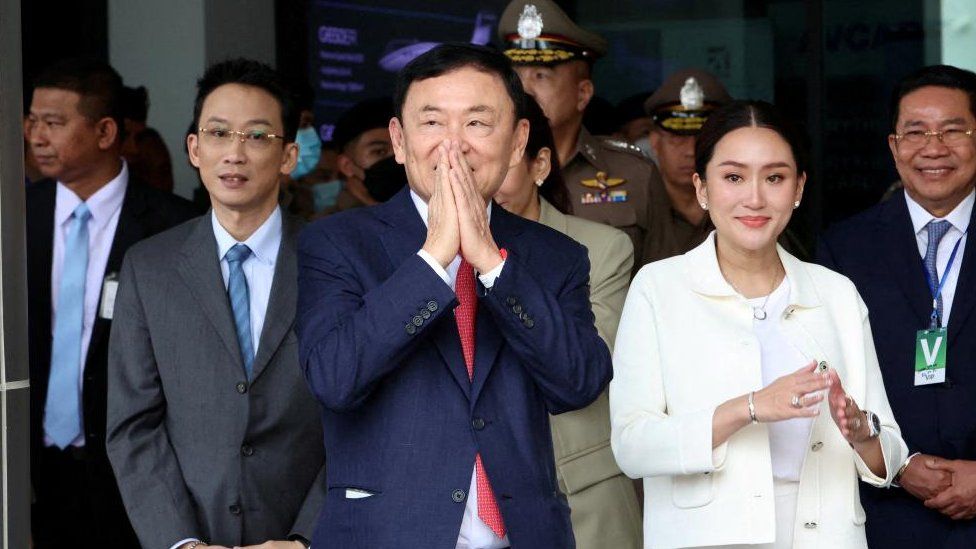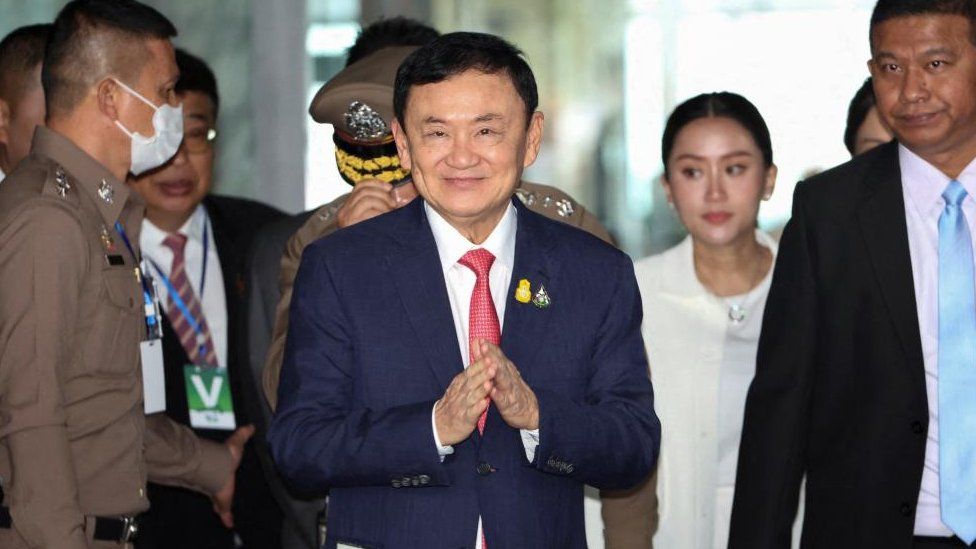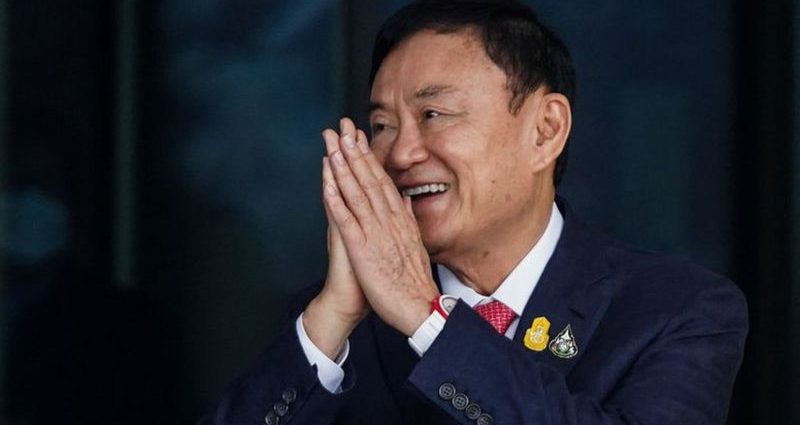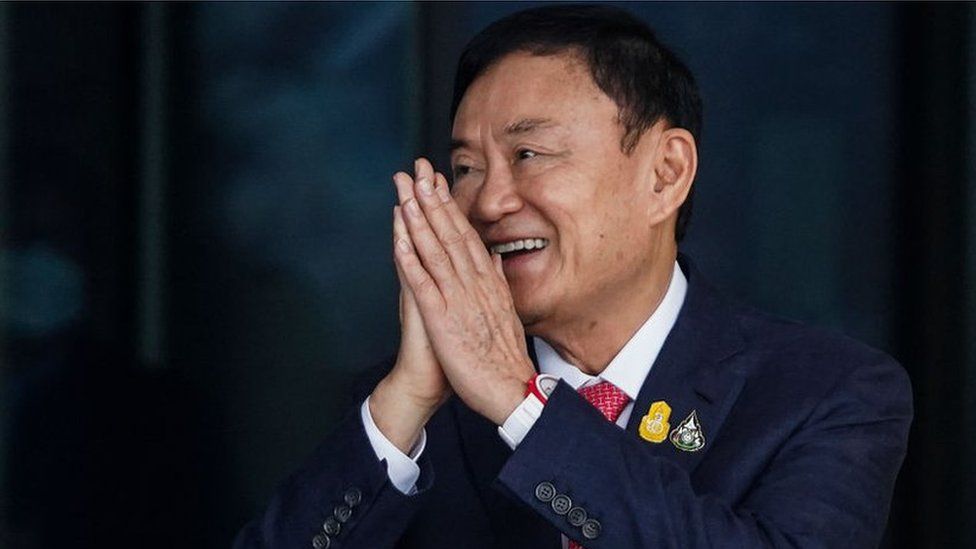
Thailand’s King has reduced the eight-year prison sentence of former prime minister Thaksin Shinawatra to a year.
Mr Thaksin, who returned home last month after 15 years of self-imposed exile, was immediately sent to jail.
He was then moved to the luxury wing of a state hospital after complaining of heart problems.
Mr Thaksin has always said the outstanding sentences, over charges of corruption and abuse of power, were politically motivated.
Deposed by a military coup in 2006, Mr Thaksin, one of Thailand’s most influential and polarising personalities, left the country two years later to avoid a prison sentence.
His return on 22 August was assumed to be part of a wider political deal. And it was one that was meant to bring his popular Pheu Thai party together with its one-time adversaries in a compromise government.
And it did that. Hours after he arrived, a new coalition government, led by Pheu Thai, voted its candidate Srettha Thavisin as the new PM. The coalition includes Mr Thaksin’s former military rivals who deposed his party in 2014 in a coup.
Mr Thaksin clearly hoped for leniency as a part of that deal, and King Vajiralongkorn has responded quickly to his request for a pardon, reducing his eight-year sentence to just one. Mr Thaksin is likely to stay in hospital.
In response to his request for a royal pardon, the royal gazette on Friday noted his age and “illness”. It added that Mr Thaksin “has done good for the country and people and is loyal to the monarchy”.
However, Mr Thaksin must have hoped his sentence would be overturned, and not just reduced.
His continued incarceration will limit his ability to influence his party, as it struggles to manage an unwieldy coalition in which it holds only around half the parliamentary seats. It also faces energetic opposition from the youthful Move Forward party, which eclipsed Pheu Thai to come first in the last general election.
But Move Forward was unable to form the government, even after agreeing to a coalition with Pheu Thai. Together, the two parties were unable to gain the assent of the 250-member unelected senate, which is allowed to join the 500 elected MPs in voting for the Thai PM.
By coming back and accepting his sentence Mr Thaksin has now settled the bitter rivalry with conservative royalists that has hung over Thailand for the last 20 years. But at the cost of being a much-diminished political figure.
Related Topics
-
-
16 minutes ago

-


